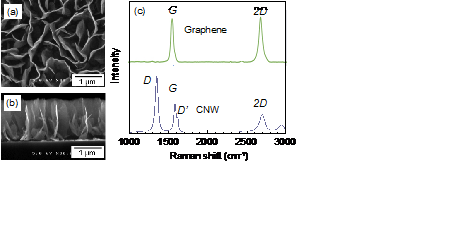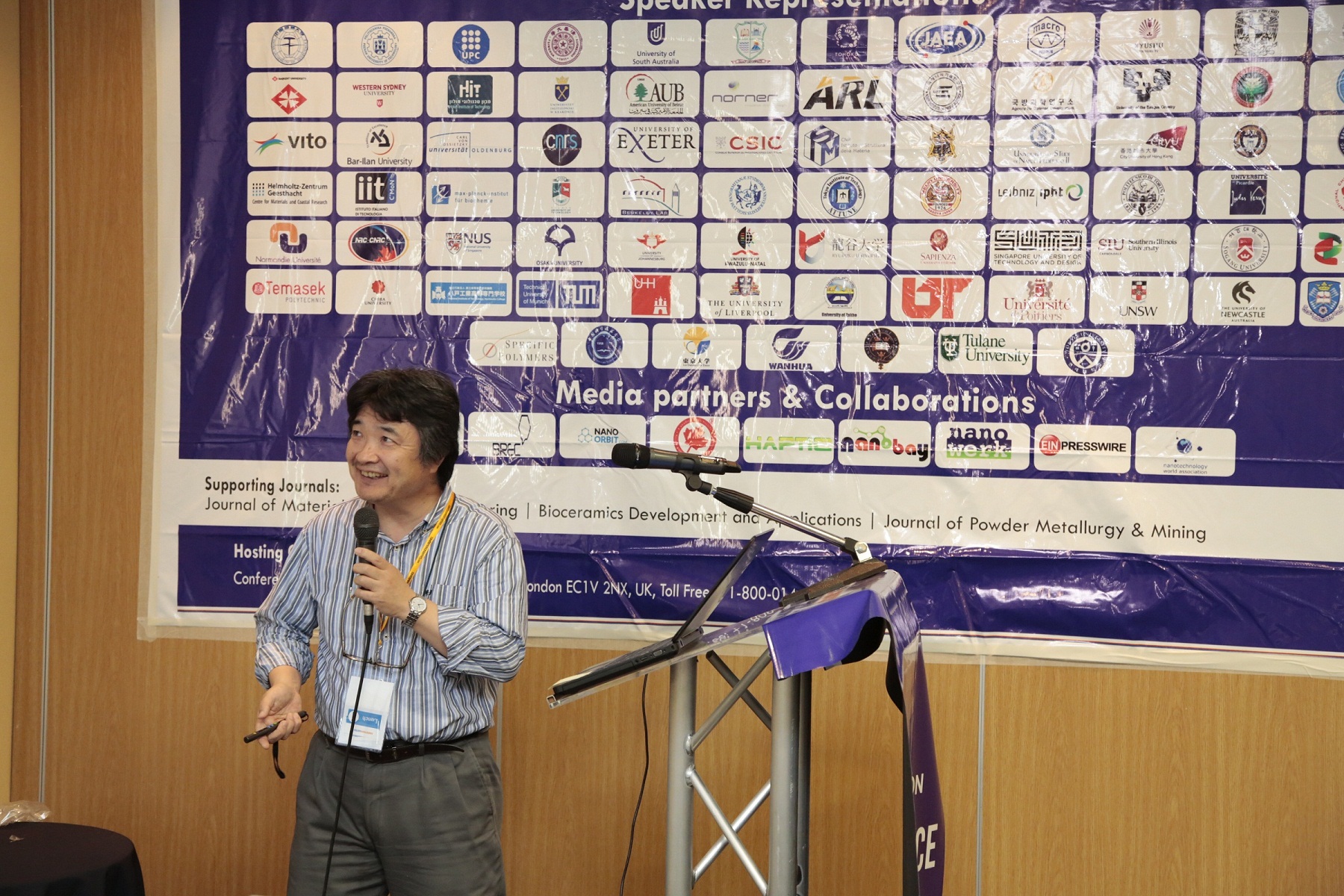
Mineo Hiramatsu
Meijo University, Japan
Title: Controlled synthesis of vertical and planar graphenes using plasma-enhanced chemical vapor deposition
Biography
Biography: Mineo Hiramatsu
Abstract
Graphene is a promising material for future electronic applications due to its outstanding properties. Planar graphene films have been synthesized using mechanical exfoliation from HOPG and chemical vapor deposition (CVD) on metals such as Ni and Cu. On the other hand, plasma-enhanced CVD (PECVD) is among the early methods to synthesize vertically standing few-layer graphenes or carbon nano walls (CNWs). CNWs are few-layer graphenes standing vertically on a substrate to form a self-supported network of wall structures. The maze-like architecture of CNWs with large-surface-area graphene planes would be useful as electrodes for energy storage devices, electrochemical and biosensors, and scaffold for cell culturing. We have investigated the synthesis of CNWs and planar few-layer graphene using PECVD with controlling the ion flux incident on the substrate and surface pretreatment. In the present study, CNW growth using inductively coupled plasma (ICP) enhanced CVD is featured, since the ICP CVD system has advantages of simple design and scalability to large area growth. Figures 1(a) and (b) show SEM images of CNWs grown using ICP. Typical Raman spectra of CNWs and planar few-layer graphene are shown in Fig.1(c). For the growth of CNWs, ion bombardment on the substrate surface would play an important role in nucleation by creating active sites for neutral radical bonding, resulting in the formation of vertical nanographene even in the case using Ni and Cu as substrates. On the other hand, by reducing the ion flux or ion energy incident on the substrate, it became possible to suppress the nucleation of CNWs under the typical plasma condition for the growth of CNWs. We report the current status of the control of the CNW structures during the growth processes as well as post treatment to be used as platform of the electrochemical and bio applications.

Recent Publications:
- Hiramatsu M, Kondo H, Hori M (2015) Nanoplatform based on vertical nanographene, graphene - New trends and developments. Ed. InTech: 145-178.
- Hiramatsu M, Shiji K, Amano H, Hori M (2004) Fabrication of vertically aligned carbon nanowalls using capacitively coupled plasma-enhanced CVD assisted by hydrogen radical injection. Applied Physics Letters 84: 4708-4710.
- Watanabe H, Kondo H, Okamoto Y, Hiramatsu M, Sekine M, Baba Y, Hori M (2014) Carbon nanowall scaffold to control culturing of cervical cancer cells. Applied Physics Letters 105: 244105.
- Cho H J, Kondo H, Ishikawa K, Sekine M, Hiramatsu M, Hori M (2014) Density control of carbon nanowalls grown by CH4/H2 plasma and their electrical properties. Carbon 68: 380-388.


